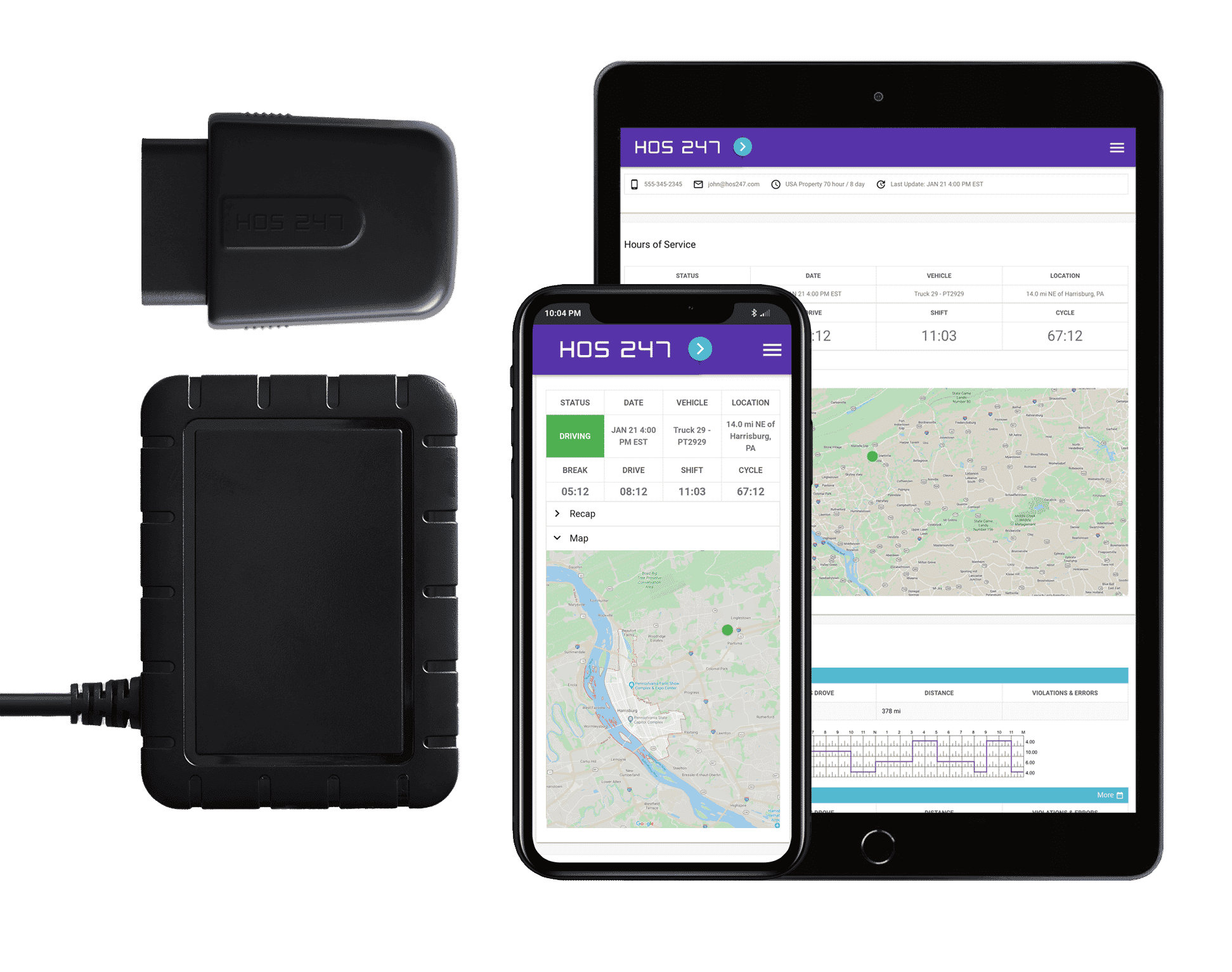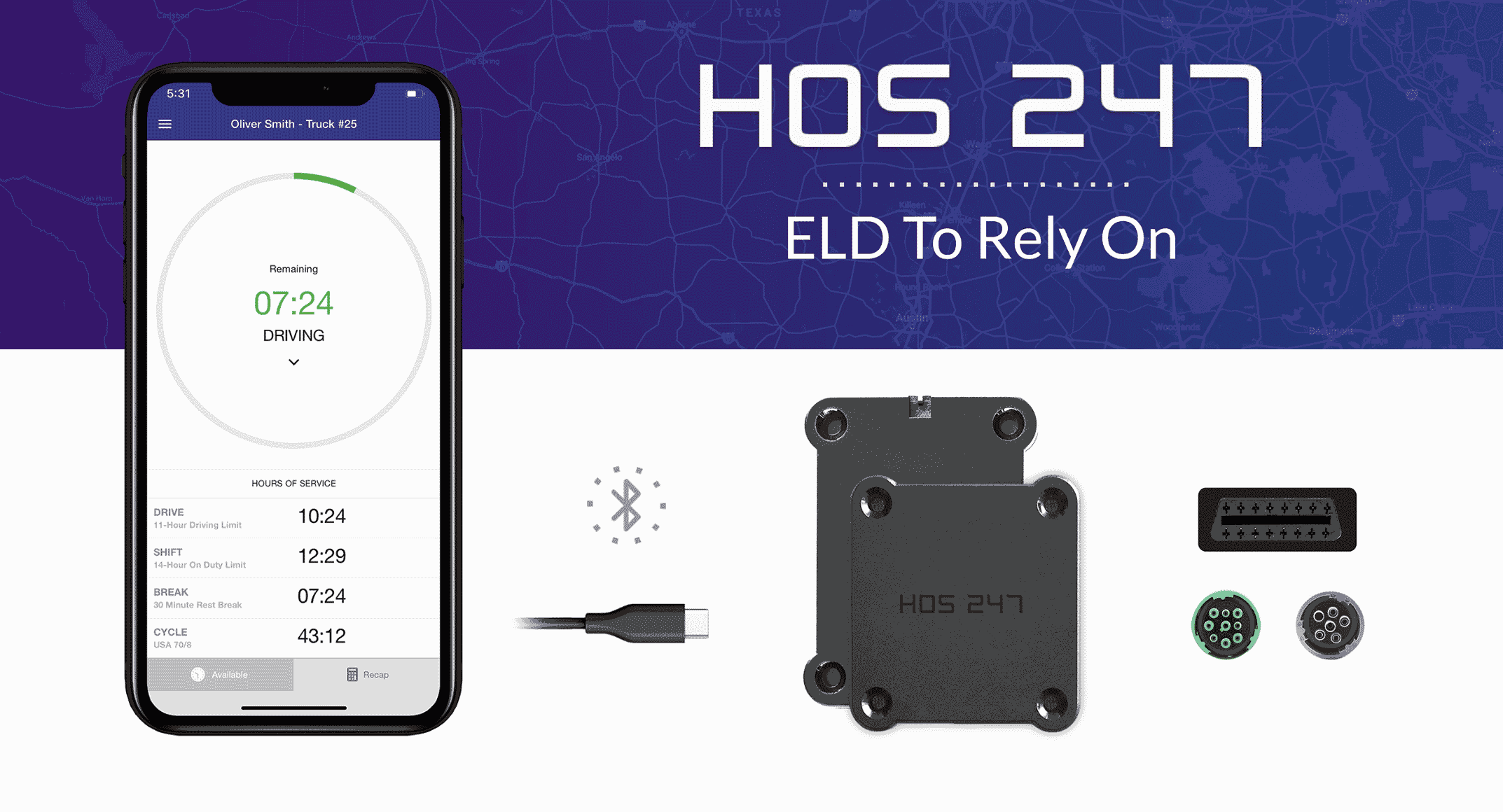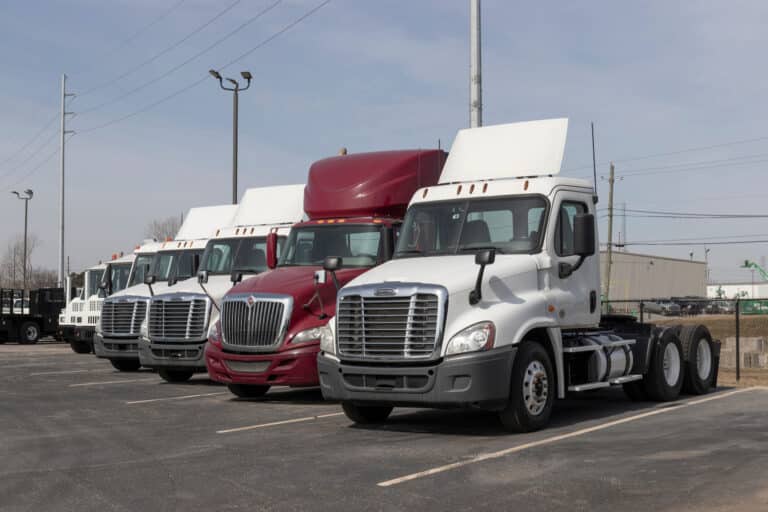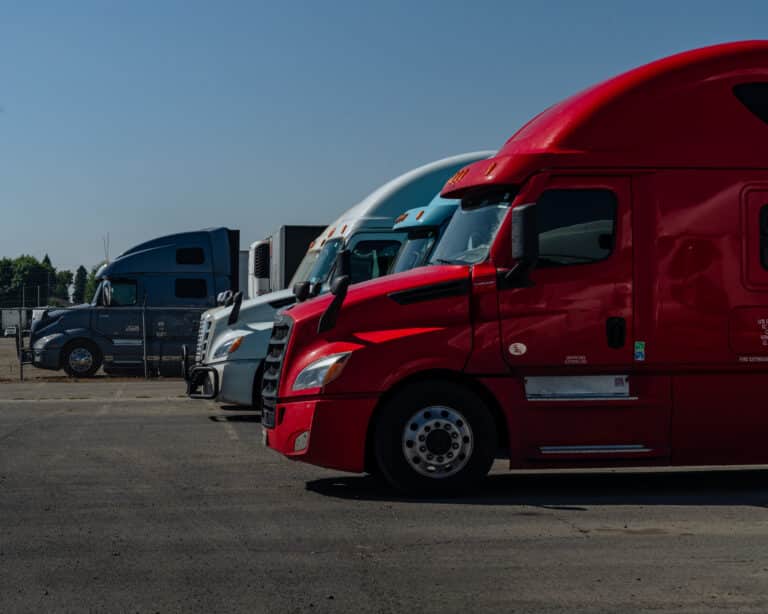GPS tracking is one of the most valuable technologies a modern trucking business can implement. While often integrated with ELD solutions, a dedicated fleet GPS tracking system is much more than just a tool for compliance; it’s a powerful engine for improving efficiency, safety, and profitability. Carriers that adopt this technology can achieve significant cost savings, enhance driver safety, and boost customer satisfaction through smarter fleet management.
This comprehensive guide will walk you through everything you need to know about choosing the right system. We will explore how GPS tracking technology works, the different types of hardware available for your trucks and trailers, and the essential software features that can transform your operations. From understanding the costs and calculating your return on investment to navigating the key benefits, this article will provide the insights you need to select the perfect fleet GPS tracking solution for your business.
Do you have any questions? Talk to ELD Advisor: 650-405-3372 or Request Callback
What Is a Fleet GPS Tracking System?
At its core, a fleet GPS tracking system is a comprehensive tool that combines hardware and software to give fleet managers a clear view of their vehicles and assets in near real-time. Think of it as a central nervous system for your fleet operations.
It consists of two main components:
- A GPS tracking device. This is the hardware installed in each truck, trailer, or piece of equipment. It uses the Global Positioning System (GPS) to pinpoint its own precise location.
- A management software platform. This is the software, accessible from a web browser or mobile app, that receives data from the tracking device. It translates this data into easy-to-read maps, alerts, and detailed reports, allowing you to monitor your entire fleet from one screen.
The primary purpose of this integrated system is to provide both live and historical data on your fleet’s location, speed, routes, and overall status, empowering you to make smarter, data-driven decisions that improve efficiency and safety.
How Does GPS Fleet Tracking Work?
The technology behind GPS fleet tracking is sophisticated, but its operation can be broken down into three simple steps:
- Data collection. A GPS tracking device, installed in the vehicle, communicates with a network of satellites orbiting the Earth to determine its exact location. In addition to location, the device can often pull critical information directly from the vehicle’s engine, such as speed, mileage, fuel consumption, and engine fault codes.
- Data transmission. Using the same cellular networks as your smartphone, the tracking device sends this collected information securely to the service provider’s servers. This happens at regular intervals, sometimes as frequently as every few seconds, to ensure the data is always current.
- Data visualization. The servers then process this information and make it available to you through the fleet management software. You can log in from your computer or a mobile app to see your trucks moving on a live map, analyze historical trip data, and run reports on fleet performance.
This seamless three-step process—collect, transmit, and visualize—is what makes real-time fleet management possible, turning complex data into a clear and actionable overview of your operations.

How to Choose a GPS Fleet Tracking System
There are many factors to take into consideration when picking a GPS tracking system. If your fleet engages in interstate commerce, the first thing to look at might be an electronic logging system that includes GPS tracking; that way, you can work with a single provider—and your staff will only have to learn to use one system—to achieve ELD compliance and improve fleet visibility. Apart from an electronic logbook, here are some qualities to look for in a GPS tracker:
- Hardware that is compatible with your vehicles. If your fleet is composed of trailers as well as light- and medium-duty trucks, it would be convenient to look for a device that can be installed in all of them.
- Easy installation. If the hardware requires special installation, this means downtime and probably an extra fee. Look for a device with quick and straightforward installation.
- Real-time tracking. Some GPS trackers give fleet managers periodic updates on the vehicle’s location. They might receive the data once a day or set shorter intervals. In general, real-time trackers provide more security and can help dispatchers reduce their workload.
- Efficient technical support. The right fleet GPS tracking system will be backed up by a strong customer support team. The provider can and should help you implement the GPS tracker so your company can get the most out of it and optimize fleet performance. They must also be able to help you troubleshoot should you need it.
- Ease of use. User-friendly software is an important component of a GPS system. The technology these devices use is complex; however, users must be able to manage it seamlessly. An intuitive fleet manager portal is key to the successful implementation of these systems.
- 4G technology. Most providers will shut down their 3G network in 2022. Choosing a device that integrates 4G can save you time and inconveniences in the future, plus the technology is more efficient.
- Demo or trial period. When looking for a GPS fleet tracking system cost is important. However, making sure the system is right for your trucking business comes first. Ask potential providers for a demo or trial and test the device’s performance before committing to anything. That way, you will know if the investment is worth it.
By carefully considering these factors you can confidently select a GPS tracking system that not only meets your immediate needs but also supports your business’s long-term growth.
Understanding the Costs and ROI of GPS Tracking
An investment in a GPS tracking system should deliver a clear return. Here’s what you need to know about the costs and financial benefits.
- Pricing models. Most providers operate on a subscription model, typically charging a per-vehicle, per-month fee. This fee usually includes the hardware, software access, cellular data, and customer support.
- Typical costs. While prices vary, you can generally expect to pay between $15 to $45 per vehicle each month. Some companies may charge an upfront fee for the hardware, while others, like HOS247, often include it with the subscription service. Be sure to ask about any hidden fees or long-term contract requirements.
- Return on investment (ROI). A quality GPS tracking system pays for itself, often within a few months. The ROI comes from several key areas:
- Significant fuel savings. By reducing idling, optimizing routes, and eliminating unauthorized vehicle use, fleets can cut their fuel costs by up to 15% or more.
- Lower insurance premiums. Many insurance providers offer discounts for fleets that use GPS tracking because it promotes safer driving and aids in vehicle recovery.
- Reduced maintenance costs. Proactive maintenance alerts prevent expensive roadside breakdowns and extend the life of your vehicles.
- Increased productivity. With better dispatching and route planning, drivers can complete more jobs in less time, directly boosting revenue.
- Theft recovery. If a truck or asset is stolen, GPS tracking provides its exact location, dramatically increasing the chances of a quick recovery.
By carefully evaluating these financial factors, you can see that a GPS tracking system is not just an expense, but a strategic investment that actively contributes to your bottom line through tangible savings and efficiency gains.
Benefits of the HOS247 4G Fleet GPS Tracking System
HOS247 has been working hand in hand with trucking businesses providing accessible, high-quality ELD and fleet management services. Top-rated customer service is a staple of the team, several other benefits bring additional value to our clients. Our fleet GPS tracking system has the following advantages:
- Cost savings. HOS247 GPS tracking provides insights that decrease costs significantly. On the one hand, idling monitoring allows fleet managers to improve fuel expenses by implementing strategies to reduce drivers’ idling. On the other hand, this technology gives fleet managers better control of assets. With GPS tracking, alerts are received if a vehicle is driven to unauthorized locations. Tracking devices help recover stolen vehicles, preventing massive losses.
- Ease of use. The HOS247 fleet GPS tracking system uses software that can be installed from your internet browser just like a standard program. Fleet managers can log in, and the user-friendly interface will be ready for use.
- Quick and simple installation. The 4G GPS tracker is small and can be installed by the driver—no need for a technician or to pay extra fees.
- Visibility for fleets and deliveries. GPS programs allow fleet managers to see the exact location of the vehicles, helping dispatchers be more efficient when assigning loads and finding the quickest routes. The GPS tracker will also serve as a tool of accountability since it can show details of the services performed and the truck’s course during their operations.
- Timely maintenance. Fleet managers are also notified when the vehicles need maintenance, preventing breakdowns and improving compliance with safety regulations. It also contributes to lengthening your trucks’ useful life.
These advantages work together to create a powerful, reliable, and user-friendly system that delivers tangible results, helping you streamline operations, improve safety, and protect your valuable assets.

HOS247 Offers a Comprehensive ELD Solution with GPS Tracking
HOS247 is an FMCSA-approved ELD provider that appreciates the added value that elog solutions can bring to the table. HOS247 goes beyond the basics and offers the following benefits to truckers:
- Reliable hardware. The elog and GPS hardware have been tried and put to the test to ensure optimal performance. Installation is quick and easy to get things up and running in a few minutes.
- Premium customer services. Our technical support team is available seven days a week, ready to help users with any issue and in four languages: English, Polish, Russian, and Spanish. The reps are knowledgeable and will call you back if the call drops.
- Trial period. Customers deserve to know what they are buying. Try HOS247 ELD with GPS for two weeks, check out the features, and get familiar with the system. You can return it within that period if you choose to and receive a hassle-free refund.
- No contract policy. HOS247 offers flexible plans that can be upgraded or downgraded as the customer sees fit. Since it works as a subscription service, users may choose to have monthly or yearly plans.
- All around user-friendly solutions. The HOS247 app has been crafted to be intuitive and easy to learn. Drivers are practical professionals; they appreciate systems that get them from point A to B as quickly as possible.
- Extra features. Apart from GPS tracking, we offer a roster of additional features to complement our logbook system:
- Vehicle diagnostics.
- Fault code detection.
- Idling monitoring.
- IFTA mileage calculations.
This all-in-one approach ensures that from compliance to fleet optimization, you have a reliable, user-friendly, and flexible solution designed to meet the real-world demands of the trucking industry.
About the ELD Mandate
Since December 2019, commercial bus and truck drivers and carriers required to log RODS are subject to the ELD mandate in the United States. The main objective is to improve safety for drivers and the public while on the road. The rule includes drivers living in Canada and Mexico. That said, the mandate allows specific exceptions:
- Short-haul drivers. They may continue to use timecards; since they are not required to keep RODS, they will not be required to use electronic logbooks.
- RODS kept for less than 8/30 days. Drivers who use paper RODS for 8 days or less out of 30 days are exempt.
- Drive-away-tow-away operations. When delivering trucks as part of the cargo, drivers may operate without an elog.
- Vehicles with engines manufactured before 2000. These vehicles do not have ECM ports, so they are not required to install electronic logging devices.
HOS247 seeks to become a partner for our customers to improve their operations. HOS247 electronic logbooks are compliant with FMCSA standards. They are designed to help prevent DOT violations so truckers can focus on growing their business with fleet management tools such as fleet GPS tracking.
Frequently Asked Questions (FAQ)
Q: Can I track my fleet from my phone?
A: Absolutely. Most leading GPS tracking providers, including HOS247, offer powerful and intuitive mobile apps for both iOS and Android devices, allowing you to manage your fleet from anywhere.
Q: Will a GPS tracker drain my truck’s battery?
A: No. Professionally designed tracking devices are extremely energy-efficient. Hardwired trackers draw minimal power and have built-in safeguards to prevent battery drain, while plug-and-play devices use a negligible amount of energy.
Q: How long does it take to install a GPS tracker?
A: It depends on the type. A plug-and-play OBD-II tracker can be installed in seconds. A hardwired installation is also straightforward and typically takes a technician between 30 to 60 minutes to complete.
Q: Is a contract required for GPS tracking services?
A: It varies by provider. Many companies will try to lock you into a long-term contract of three to five years. However, customer-focused providers like HOS247 offer flexible, no-contract plans, allowing you to choose a subscription that works for your business.
Conclusion: Partnering for a More Efficient Future
Choosing the right fleet GPS tracking system is about more than just seeing dots on a map—it’s about investing in a powerful tool for safety, efficiency, and profitability. By providing deep insights into every aspect of your fleet’s operations, from driver behavior and fuel consumption to maintenance needs and route efficiency, a GPS system transforms raw data into actionable intelligence. It is an essential component of a modern, competitive trucking business.
When you are ready to take control of your fleet, reduce costs, and improve customer satisfaction, a reliable partner can make all the difference.

I’ve co-founded, built and managed several transportation-related businesses. Now, I’m a founder and CEO of HOS247 – an AI Transportation Platform for trucking companies, freight brokers and other logistics operations. We are transitioning old-style operations to technology-advanced logistics entities and help them to grow their businesses. ELDs (electronic logging devices), fleet tracking and management 2.0 combined with AI-powered dispatch tools.












Fleet GPS trackers allow managers to monitor vehicle locations and other relevant data to identify efficiency gaps, streamline operations, and increase productivity. Tracking devices, also known as automatic vehicle locators, capture real-time data using telematics technology, including GPS coordinates and

The Logbook App for iPhone to Rely On Electronic logging devices are critical for drivers and carriers that operate under FMCSA hours of service rules. The challenge is finding the right ELD when there are so many on the market.

The ELD mandate has changed how truckers track hours of service. While the transition from paper logs to electronic systems promised greater efficiency and compliance, the reality has been mixed for many truckers. Nearly every driver on the road today